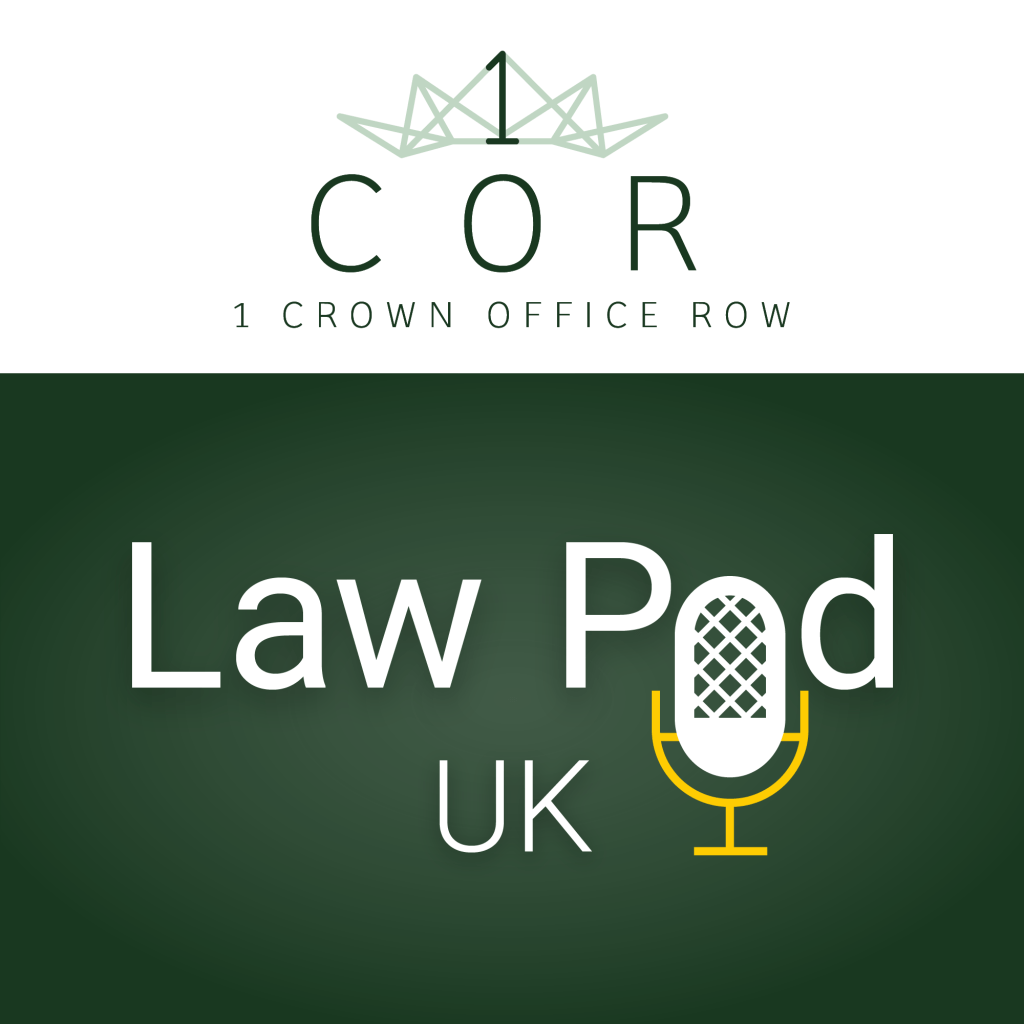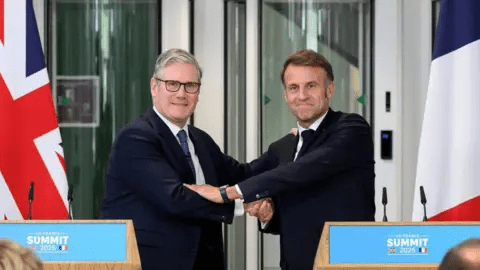In HM Attorney General for England and Wales v British Broadcasting Corporation [2025] EWHC 1669 (KB), the Divisional Court (the Lady Chief Justice,the President of the King’s Bench Division, and Chamberlain J) gave judgment in relation to the deployment of evidence by MI5 in proceedings concerning the BBC’s reporting on a covert human intelligence source (CHIS), referred to as “X”. The judgment is quite extraordinary, including substantial criticism of the approach taken by MI5 in this case and specific guidance as to the way that evidence from an agency such as MI5 should be presented in future.
Factual Background
The case arose from the BBC’s investigation into X, who was alleged to be a dangerous extremist and abuser. The BBC intended to broadcast a programme naming X and detailing his conduct, including allegations that he had used his CHIS status to control and abuse a partner (referred to as “Beth”). MI5 sought to prevent the BBC from identifying X, citing national security concerns and invoking the ‘neither confirm nor deny’ (NCND) policy.
In early 2022, the Attorney General at the time (Suella Braverman KC MP) sought an injunction to prevent the BBC from broadcasting or publishing the story about X. Special advocates were appointed to represent the BBC’s interests in respect of closed material that was relied upon. The High Court (Chamberlain J) granted an interim injunction preventing identification of X but allowed reporting on other aspects, including MI5’s use of X as a CHIS and its alleged failings.
In support of the application for an injunction, MI5 provided evidence through “Witness A”, a senior officer, stating that MI5 had maintained NCND throughout its dealings with the BBC. This evidence was affirmed in response to special advocates’ enquiries and had important implications for the way in which the proceedings were conducted, and each of Chamberlain J’s public judgments and orders were drafted so as not to reveal whether X was, in fact, a CHIS.
However, it later emerged that another MI5 officer (“Officer 2”), head of communications at MI5 at the time, had, in fact, been authorised to confirm to the BBC that X was a CHIS and had done so in a series of conversations in June 2020. This only came to light when the BBC’s journalist, Daniel De Simone, produced notes and recordings of the conversations. However, by this time the false evidence had also been relied upon in proceedings before the Investigatory Powers Tribunal and in a judicial review claim.
In January of this year, MI5 and the current Attorney General (Lord Hermer KC) admitted that false evidence had been given, apologised, and outlined steps for investigation. In February, the injunction was varied by consent to allow the BBC to report on the fact that, and the circumstances in which, false evidence had been given.
The Court was asked to consider issues including: (a) how the false evidence came to be deployed and what further steps should be taken; and (b) whether the Attorney General should be permitted to maintain NCND on the question of X’s CHIS status.
The Court’s Decision
The Court set out its overall conclusions in this extraordinary case, as follows (at [12]):
(a) The evidence that has been put before the court indicates that the special advocates, the High Court, the IPT and the Investigatory Powers Commissioner were all misled on the key question whether MI5 had departed from NCND in relation to X’s CHIS status. The proper operation of each of these safeguards is dependent upon high standards of candour on the part of the agencies. Any evidence of a departure from these standards must be promptly and effectively investigated.
(b) NCND was maintained until shortly before the hearing before us on 3 June 2025, long after MI5 had filed evidence making clear that Witness A’s evidence was incorrect and any justification for its maintenance had disappeared. Thought should have been given at a much earlier stage to the question whether it was realistic to maintain NCND in the circumstances, particularly given that the effect of doing so was to cast formal doubt on the veracity of Mr De Simone’s evidence.
(c) It is regrettable that MI5’s explanations to this court were given in a piecemeal and unsatisfactory way—and only following the repeated intervention of the court.
(d) The investigations carried out by MI5 to date suffer from serious procedural deficiencies. Their conclusions cannot presently be relied on.
(e) In those circumstances, we consider that it would be premature to reach any conclusions on whether to initiate contempt proceedings against any individual. We accordingly adjourn consideration of that question pending the outcome of a further investigation which we anticipate will not suffer from the defects that we have identified. We consider that this further investigation should be carried out under the auspices of the Investigatory Powers Commissioner, who has oversight of MI5’s surveillance activities.
(f) Separately, we give more general guidance about the way in which evidence from an agency such as MI5 should be presented and received in future. Parties should take care to ensure that evidence is given either by the person with most direct knowledge of the matter in question or, if given in a “corporate” witness statement, that the deponent makes clear from which other (named) persons the evidence derives, and precisely what, if any, independent scrutiny they have given to the evidence being proffered. The requirements of the Civil Procedure Rules (“CPR”) must be observed.
The Court went on to state as follows:
a. NCND is not a legal principle but a policy that must be justified in each case (at [23], citing Secretary of State for the Home Department v Mohamed [2014] 1 WLR 4240). However, MI5 had adopted a “patently unrealistic position” by continuing to maintain NCND while also accepting that there was “no real dispute” about the authenticity of notes and transcripts provided by the BBC journalist “which showed very clearly” that there had been a departure from NCND (at [74]-[77]).
b. The misleading information provided by MI5 included two apparently false statements had been given to a series of direct and precise questions posed by the special advocates, which was one of several matters that was “particularly troubling” (at [38]).
c. It mattered whether MI5 had confirmed X’s CHIS status, because it was relevant to the substance of the claim for an injunction (for breach of confidence), it was central to the application for a closed material procedure under the Justice and Security Act 2013, it was relevant to the application for a private hearing, and it had broader implications for the stance adopted by MI5 and other agencies in legal proceedings (at [43]-[47]).
d. The internal and external investigations undertaken by MI5 had deficiencies which meant that the Court was “unable to have the requisite degree of confidence in the conclusions reached”, including a failure to engage with the BBC journalist or to obtain all relevant evidence before reaching conclusions, incoherence in the terms of reference for the external review (which precluded findings about individual motivations) and, in circumstances where final conclusions that there had been no deliberate attempt to mislead the Court were reached, inevitable difficulty in reappraising these conclusions in light of evidence which fundamentally affected its basis (at [84]-[86]).
e. When corporate witness statements by Government agencies are being prepared, the provisions of paragraph 18.2 of Practice Direction 32 to the Civil Procedure Rules must be complied with, which require that the statement made clear which of the statements in it are made from the witness’s own knowledge and which are matters of information or belief, and the source for any matters of information or belief: “This level of rigour will add to the burdens of those preparing evidence for government litigation, but it will deliver three important and related benefits. It will concentrate the minds of the persons providing the information on the accuracy of any statements they make. It will enable to the court to assess for itself how much weight should be accorded to the institutional evidence. In a case where the evidence given is deliberately or recklessly false, it will make clear who is responsible” (at [106]; see also [97]-[105]).
The Court concluded as follows (at [107]-[109]):
Our conclusions are summarised in the opening section of this judgment, which we do not repeat. Whilst we accept the genuineness of the apologies proffered on behalf of MI5, the fact remains that this case has raised serious issues. MI5 gave false evidence to three courts. This was compounded by inadequate attempts to explain the circumstances. MI5 chose to maintain NCND long after it was unrealistic to do so.
The special advocates are to be commended for the central role that they have played in bringing these matters to light, as are Mr De Simone and the BBC (and its legal team). It is to be hoped that events such as these will never be repeated.
We direct that a copy of this judgment be sent to the Secretary of State for the Home Department, who has Ministerial responsibility for MI5, and to the Investigatory Powers Commissioner.
Comment
This is a very striking judgment, which strongly reaffirms the high standards of candour to which Government agencies are expected to conduct litigation. The guidance in respect of the preparation of corporate witness statements, which reaffirms the requirements of the Civil Procedure Rules in stark and ringing terms is likely to be of interest across civil litigation against Government departments, where the use of such statements is common. The specific praise by the Court of the BBC journalist, the BBC itself, the BBC’s legal team and the special advocates in bringing what had happened to light is also noteworthy, and perhaps reflects the substantial disquiet that the Court had about the possibility that what had taken place might, in different circumstances, have continued undetected.
Jonathan Metzer is a barrister at 1 Crown Office Row. He is on the editorial board of the UK Human Rights Blog.
Neil Sheldon KC of 1 Crown Office Row was part of the legal team instructed on behalf of HM Attorney General. He was not involved in the writing of this post.
The post False evidence, procedurally deficient investigation, and warning bells for contempt: MI5’s approach to domestic abuse agent scrutinised appeared first on UK Human Rights Blog.




